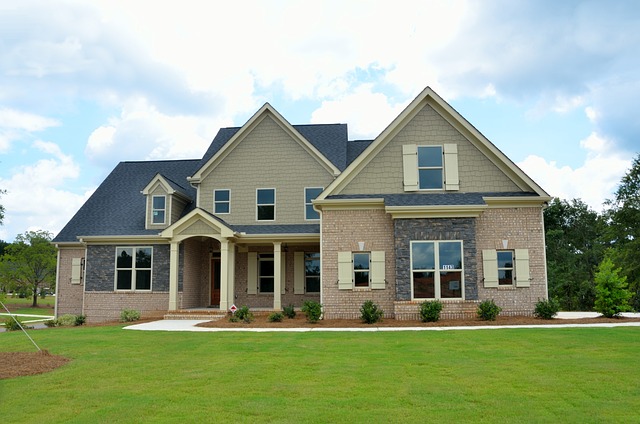The rental market for Executive Condominiums (ECs) labeled as Ec Sg in Singapore has seen a notable shift, with an increased demand from young families and investors driving a transformation in the sector. These ECs serve as a cost-effective and viable alternative to private condominiums, offering extended lease terms compared to HDB flats and potential for capital appreciation following a five-year occupation period, after which they can be sold on the open market. The Housing & Development Board (HDB) and private developers have met this demand by launching new EC projects in sought-after townships like Sengkang and Punggol, known for their favorable locations, comprehensive amenities, and excellent connectivity, which together contribute to a balanced supply and demand equilibrium. This balance supports stable rental yields for investors and enhances the living experience for residents. For those interested in the property market, especially within the Ec Sg segment, it is crucial to monitor trends and consider factors such as location, facilities, and the EC's age when evaluating rental pricing. As ECs transition from HDB to private property regulations after their TOP date, this can also influence leasing terms and should be a consideration for both tenants and investors looking to navigate the dynamic real estate landscape in Singapore.
Exploring the intricacies of Singapore’s property market, this article sheds light on the burgeoning Executive Condominium (EC) rental sector, colloquially known as EC SG. The EC rental market has seen significant shifts, with demand and supply patterns evolving in response to economic fluctuations and changing demographic preferences. This piece dissects the latest trends, delves into pricing dynamics, and examines the diverse profiles of EC tenants in Singapore. Join us as we navigate this complex landscape, offering valuable insights for investors, homeowners, and potential renters alike.
- EC (Executive Condominium) Rental Market Trends in Singapore: An Overview of Ec Sg Demand and Supply
- Navigating the nuances of EC rental pricing, leasing terms, and tenant profiles in Singapore's dynamic property landscape
EC (Executive Condominium) Rental Market Trends in Singapore: An Overview of Ec Sg Demand and Supply

The Executive Condominium (EC) rental market in Singapore, often referred to as Ec Sg, has experienced significant shifts in demand and supply dynamics over recent years. Prospective renters in Singapore, particularly young families and investors, have increasingly turned to ECs as a cost-effective alternative to private condominiums. This trend is driven by the unique combination of benefits that ECs offer, including longer lease terms compared to HDB flats and the potential for capital appreciation post the five-year minimum occupation period, allowing residents to sell their units on the open market.
The supply of ECs in Singapore has been responsive to this growing demand. The Housing & Development Board (HDB) and private developers have collaborated to launch new EC projects at a steady pace, ensuring a consistent pipeline of units to meet the housing needs of upgraders. Notably, the popularity of specific townships such as Sengkang and Punggol has surged, with Ec Sg units in these areas being highly sought after due to their strategic locations, amenities, and connectivity. This has led to a healthy balance between supply and demand, maintaining stable rental yields for investors while providing quality living options for residents. Keeping an eye on the latest Ec Sg trends is crucial for stakeholders looking to navigate this vibrant segment of Singapore’s property market.
Navigating the nuances of EC rental pricing, leasing terms, and tenant profiles in Singapore's dynamic property landscape

In Singapore’s vibrant property market, Executive Condominiums (ECs) Sg present a unique segment for both homeowners and renters. Prospective tenants looking to navigate the EC rental pricing landscape will find that prices are influenced by a variety of factors including location, facility offerings, and the age of the development. Unlike private condominiums, ECs in Singapore undergo a transition from being eligible for first-time public housing buyers to becoming open market properties after a certain period, which can affect their rental pricing. This transition typically occurs at the fifth anniversary of the EC’s Temporary Occupation Permit (TOP), with prices often adjusting to align with market rates post-maturity. Leasing terms for ECs Sg are also subject to change as they adhere to the guidelines set by the Housing & Development Board (HDB) during the initial lease period, and later abide by private property rules. Tenant profiles in this sector are diverse, ranging from young professionals to multi-generational families, reflecting the adaptability of ECs to various living needs. Understanding the intricacies of EC rental pricing and leasing terms is crucial for both tenants and investors alike, as it ensures informed decision-making in a competitive and dynamic property market. Tenants should consider factors such as proximity to MRT stations, local amenities, and school catchment areas when assessing potential ECs for rent, as these can significantly impact both the rental value and quality of living.
EC rental markets in Singapore, as encapsulated by the ‘Ec Sg’ moniker, have demonstrated resilience and adaptability in response to evolving demand and supply dynamics. The intricacies of pricing, leasing conditions, and tenant demographics, which are unique to this niche segment, continue to shape the market’s trajectory. Prospective renters and investors alike must stay abreast of these trends to make informed decisions within this vibrant sector of Singapore’s property landscape. As the EC rental market in Singapore moves forward, it remains a compelling area for analysis and investment, offering opportunities amidst its shifting sands.
